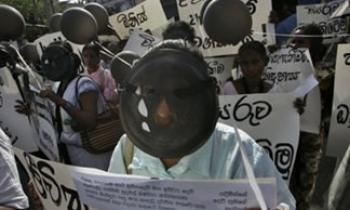NEW YORK: "AntiBrennan," as he branded himself, was happily blasting away at his contentious, litigious arch-enemy on NJ.com, raining down such pejoratives as a "litigation terrorist," "Billy the Baby," and a "paranoid-delusional, over-paid-under-worked sicko."
But then NJ.com -- a joint venture of New Jersey newspapers including the Star Ledger, The Trenton Times and The Jersey-Journal -- revealed his name in what he claims in a new legal action was a clear violation of the online site's users' agreement. Yesterday the lawsuit was filed on his behalf by Public Citizen Litigation Group, a public interest legal organization founded by Ralph Nader.
The facts in the case, which could have nationwide repercussions for newspaper-owned Internet Service Providers (ISPs), are straightforward, albeit filled with much small-town intrigue.
William J. Brennan is a firefighter who had been employed with the Teaneck Fire Department. Brennan was a frequent poster on NJ.com's Teaneck message board, where he often lodged complaints against the Teaneck Council, including Councilman Michael Gallucci. Prior to mid-December, 2005, Brennan had been involved in approximately 10 lawsuits involving the Township of Teaneck, as well as some Teaneck council members.
Meanwhile, until early last year, "AntiBrennan" was a mystery, one of several anonymous commentators who posted very critical statements about Brennan on the Teaneck message board of NJ.com.
But last January, Brennan returned the favor, posting a message on the Teaneck board that named 41-year-old council member Michael Gallucci as "AntiBrennan," portraying him as a mean-spirited, vicious and spiteful person who did not have the community's best interests at heart.
Brennan's stinging criticism struck a nerve, and within short order Gallucci was forced to resign from the council, on which he had served for 11 years. Newspapers suggested that comments by "AntiBrennan" that blamed the Teaneck fire department for the deaths of four children in a fire were the prime cause.
Subsequently Gallucci had been so shamed in the community, he claimed, that he was forced to sell his house at a loss. Even though Gallucci's family, friends and professional life revolved around Teaneck, he moved his wife and children out of the city. He has difficulty returning to this day, often sending his wife and sister-in-law into Teaneck on his behalf.
How firefighter Brennan learned that "Anti-Brennan" was in fact council member Michael Gallucci is at the heart of the latter's lawsuit filed yesterday by Public Citizen Litigation Group, which has been involved in Internet free speech issues and developing the right to anonymous speech online.
NJ.com’s general counsel declined to comment beyond issuing a statement in the immediate aftermath of the complaint being filed, saying: “We believe that the complaint does not accurately reflect the law and we are confident that our client will prevail.”
It turns out that Brennan learned the true identity of "AntiBrennan" after NJ.com released Gallucci's email address in response to a subpoena from firefighter Brennan's attorney. The subpoena was issued pursuant to an employment discrimination case Brennan brought against the Township, in which Gallucci was a defendant in his capacity as a Council member. That case had nothing to do with Gallucci's anonymous comments; it was a coincidence that "AntiBrennan" happened to be a party in that lawsuit. Gallucci's name was on the list.
NJ.com did not notify Gallucci that it was about to reveal his identity to Brennan. Gallucci only learned about the subpoena when Brennan posted a message on NJ.com, which identified Gallucci and chastised him for his anonymous messages.
And then the firestorm of criticism of Gallucci began almost immediately.
As part of the waves of public attacks on Gallucci, on January 6, the day after Brennan posted the true identity of Gallucci on the Teaneck board, the Mayor of Teaneck issued a press release stating that she would formally call for Gallucci's resignation if he had not resigned by January 10, Gallucci's complaint states.
The same complaint says that on January 7, The Record published an article about Gallucci in which his anonymous username was revealed and his anonymous postings were reprinted. On January 10, digging in deeper, The Record criticized Gallucci's conduct and suggested that the sooner he resigned from the council, the better.
On January 10, Gallucci tendered his letter of resignation.
The reason that the quick release of Gallucci's true identity is so vital to the case, his lawyers argue, is that it violates the clearly stated precepts of Dendrite International v. Doe, a case ruled on in New Jersey Superior Court in 2001 in which it was decided that there are certain "higher standards" that have to be met before an ISP can release the true identity of an anonymous poster.
In response to the subpoena, the Gallucci complaint argues, NJ.com released AntiBrennan's identifying information to Brennan "without complying with the process set forth" in Dendrite.
NJ.com allegedly did not:
-- Consult with or inform Gallucci of the release of his confidential information.
-- Post a message on its message board notifying Gallucci of the imminent release of his personal identifying information.
-- Give Gallucci an opportunity to challenge the subpoena or to protect his identity.
Further, says the complaint, "NJ.com knew or should have known that Dendrite forbids the enforcement of a subpoena against anonymous Internet speakers without notice to the anonymous speaker."
The complaint alleges that the importance of Dendrite is magnified by NJ.com's Privacy Policy and User Agreement, which users must accept before posting comments on NJ.com's message boards. The Privacy Policy tells users that NJ.com will not release a user's confidential information unless legally required to do so. NJ. Com was not legally required to comply with Brennan's subpoena, the complaint alleges, until it had given Gallucci notice and an opportunity to challenge the release of his identity.
The bottom line, says the complaint: "In releasing Mr. Gallucci's confidential information without providing Mr. Gallucci with an opportunity to challenge the subpoena, NJ.com violated the terms of its Privacy Policy, which forbids NJ.com to release information pursuant to a subpoena unless legally required to do so."
The argument of Public Citizen, which brought the lead opinion in Dendrite, is that disclosure is not legally required until the process of notice and opportunity to object has been met.
Public Citizen's Jennifer Soble, the lead attorney for Gallucci, said this situation is highly analogous to when a newspaper is asked or subpoenaed to identify a source of one of its print news stories. "Newspapers routinely fight to protect the identities of their confidential sources in the face of subpoenas," she notes. "Like a source, Mr. Gallucci was promised that his identity would remain confidential, and he rightfully expected that NJ.com would not release his identity without allowing him to challenge an attack on his anonymity."
Soble added that it is the common practice of many Internet Service Providers to send users a letter or email when their identities have been subpoenaed, and to allow the user to formally challenge the subpoena in court.
Charging that NJ.com knew or should have known that disclosure of the confidential information associated with the AntiBrennan username to Brennan would result in embarrassment to Gallucci, and given the emotional and economic harm it has caused, Gallucci is suing for NJ.com for money damages as well as declaratory relief seeking to broaden a final decision to apply to other ISPs in similar situations.
Steve Yahn (letters@editorandpublisher.com) is a frequent contributor and former executive editor of E&P.









